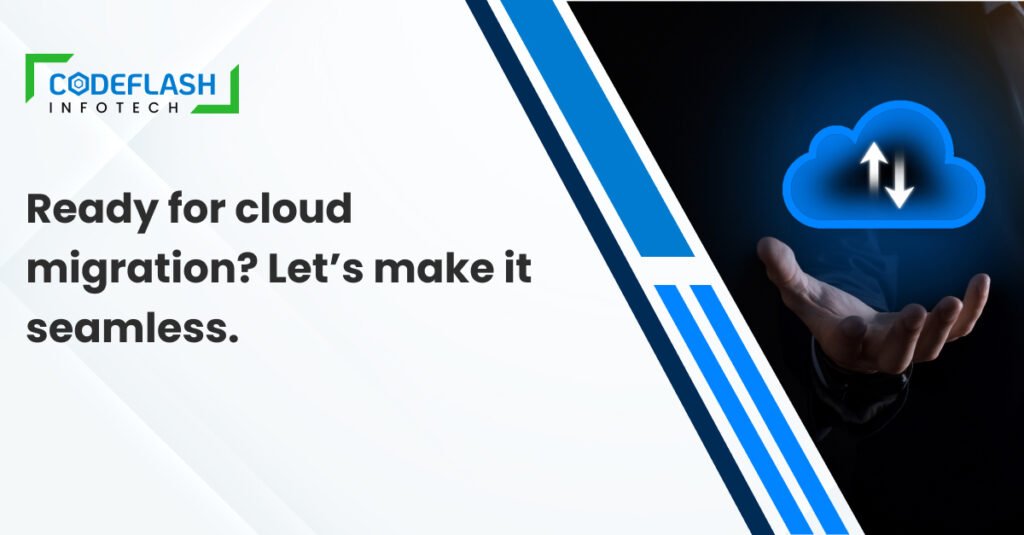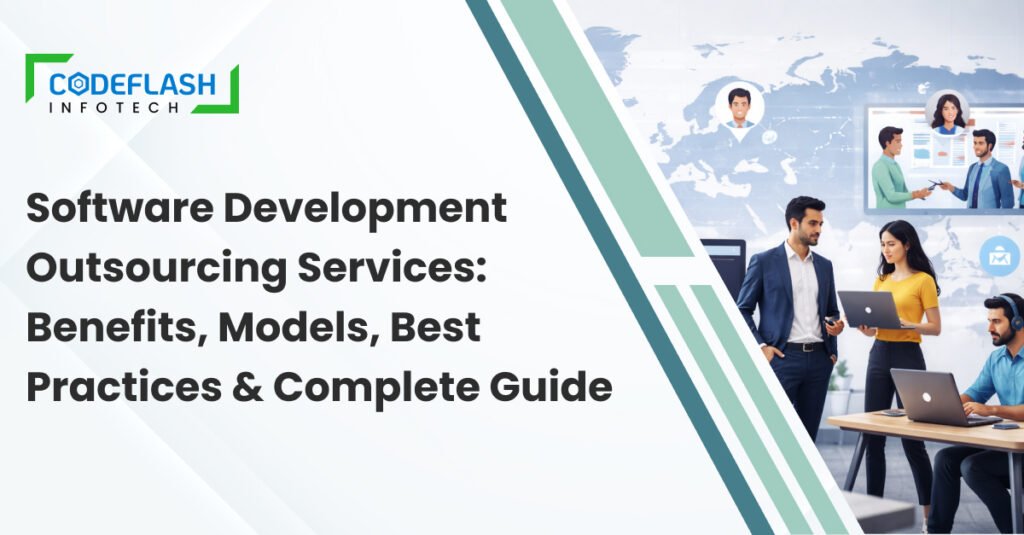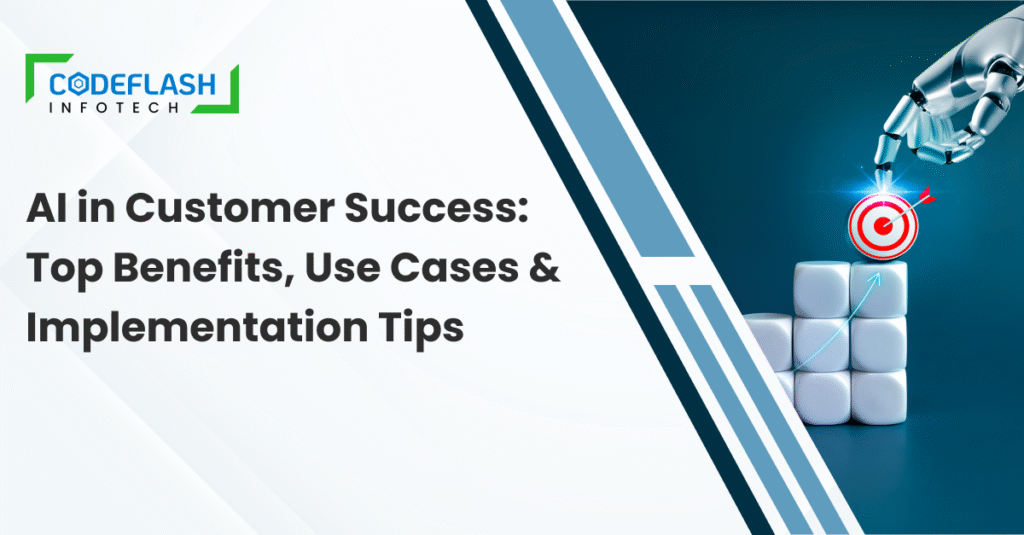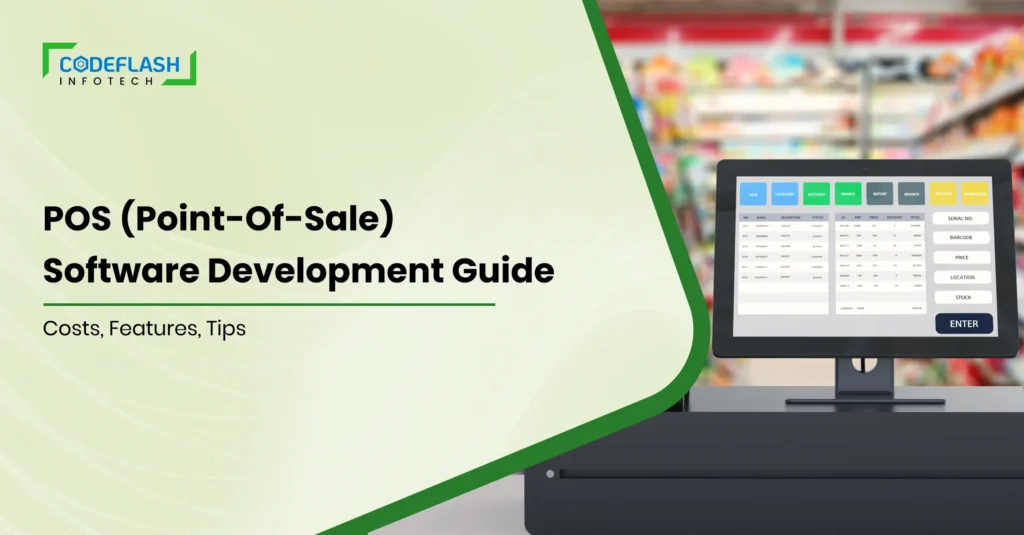
POS Software Development Guide: Costs, Features, Tips
20 AUGUST
Quick summary: This blog explores the essentials of POS software development guide in 2024. It covers what a POS system is and how it works, development costs, and factors influencing pricing. Additionally, it highlights key features to include and the benefits of custom POS software for enhancing your business operations.
Introduction
A Point-of-Sale (POS) system is a crucial component that empowers businesses to efficiently manage sales transactions and optimize workflows. As the backbone of any successful enterprise, a POS system integrates both software and hardware to streamline the entire sales process. The POS software is the driving force behind the system, handling everything from inventory management and sales tracking to generating real-time data and more. For businesses looking to implement or upgrade their systems, following a comprehensive POS software development guide is essential to ensure all critical functions are effectively addressed.
This article covers the POS software development guide, including costs and key features of an effective point-of-sale system.
What Is a POS System and How Does It Work?
Point of sale (POS) software is becoming indispensable in retail and hospitality. It is different from your average cash register. It is a single system that integrates inventory control, sales, and customer relationship management (CRM). It acts as the centre of smoothly integrated company processes for sales, customer data, and stock.
POS software is fundamentally where sales take place. However, it’s more than just a sales tool. It contains sales reporting, which provides information on the company’s state, and inventory tracking, which updates stock levels quickly. Additionally, it manages consumer data, which helps with targeted marketing and improved customer support.
How Much Does It Cost to Develop Point-of-Sale Software?
Developing a point-of-sale system with minimal features could cost $25,000 to $40,000. However, you must spend between $50,000 and $90,000 on more sophisticated features and mobile application support. To ensure a successful development process, it is recommended to work with a trustworthy Dubai mobile app development company or Android app development company in dubai, Saudi Arabia and engage experienced POS developers with point-of-sale system experience. This method provides a tailored POS Solution that increases client satisfaction and operational effectiveness.
Key Factors Influencing the Cost in a POS Software Development Guide
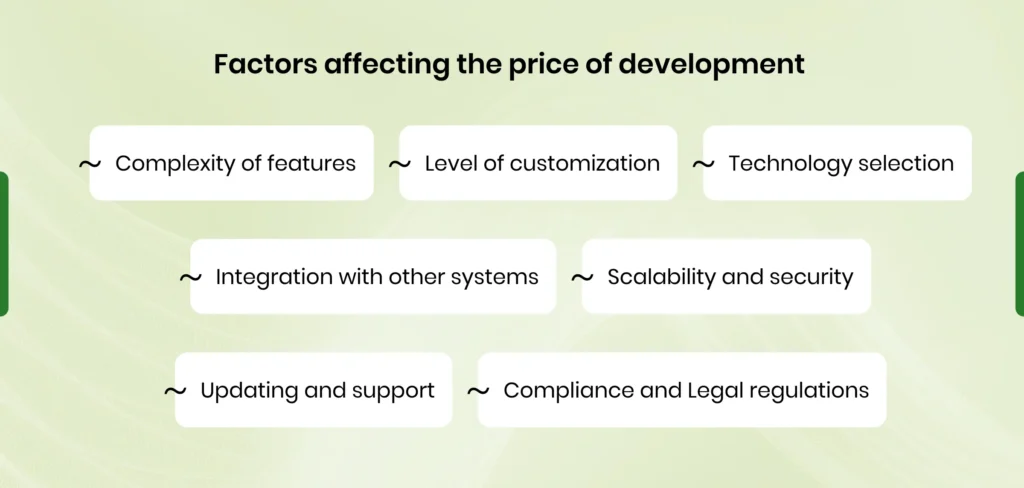
- Complexity of Features:
Enhanced POS system features, such as real-time inventory tracking and comprehensive analytics, are more expensive. Building these functionalities will take more time and experience. - Level of Customization:
Creating a POS system customised to your company’s needs may cost more than purchasing a conventional one. However, it ensures that the program integrates flawlessly with your workflow. - Technology Selection:
The technology employed influences the POS system’s development cost. While more expensive, new and sophisticated technology could have better features. - Integration with Other Systems:
Adding POS software to already-existing platforms, such as ERP or e-commerce, raises expenses. The cost increases with integration complexity. - Scalability and Security:
Developing a POS system that is both secure and scalable is crucial, particularly when managing large volumes of transactions and consumer data. But this can make development more expensive. - Updating and Support:
After developing the point-of-sale software, continuous upkeep and assistance are essential. Could you include them in your overall budget? - Compliance and Legal regulations:
Adhering to regulatory rules and industry standards, such as PCI DSS for payment processing, may also impact the cost.

Key Components of a POS System: A Comprehensive POS Software Development Guide
- Integration:
The configuration of your point-of-sale system should work with other modules. Modules for time and attendance, inventory control, bookkeeping, loyalty schemes, gift cards, etc., are a few examples. When data is manually moved from one system to another, there is less opportunity for mistakes and inconsistencies when the systems are connected. - Employee Management:
This application primarily tracks when employees arrive and depart for their shifts. This helps with payroll management and scheduling. - Inventory Management:
Every company must deal with inventory shrinkage. By controlling the amount of inventory on hand, you can immediately address this problem. This inventory management system allows you to always be updated with your inventory. An important element for any organisation is knowing that about 83% of POS buyers request your exact inventory. - Customer management:
Use this feature to identify and reach more high-quality customers proactively. Gathering information on past purchases will enable you to determine which of your clients are the most valuable based on spending patterns. This additional level of transparency can only be achieved if you have a point-of-sale system. - Purchasing that is streamlined.
Companies of all sizes, across all sectors, will attest to the significance of this characteristic, which shouldn’t be disregarded. How a business sources goods and services can significantly impact its spending, profit margin, and overall profitability. You can never run out of inventory if you communicate excellently and timely with your suppliers. - Customer Relation Management:
The system tracks information about regular customers by “knowing” them personally. This allows the business to know the date of the customer’s most recent purchase, the time they were added to the database, and the total number of purchases they have made this year. - Stock Management:
Reclaim extra hours from your week when you are sure that the information that matters most is being watched over. You can scan things anywhere, manage in bulk, identify your best-selling products, set up order triggers for sales, and get as specific as the exact ingredients in your products. Using this tool, you can reduce your time manually ordering and figuring out your supply levels.
Benefits of Developing POS Software for Your Business
Developing custom POS software offers significant advantages, especially in Dubai and Saudi Arabia. Custom POS systems allow businesses to incorporate key features specific to the region, such as multi-currency support and localised payment methods, which enhances operational efficiency and accuracy. This tailored approach ensures that the POS system aligns with local market needs and provides a better user experience.
Custom POS software solutions in Dubai also offer long-term cost savings and scalability. Unlike off-the-shelf options, bespoke systems can grow with your business, adapting to new features and technological advancements. This adaptability eventually contributes to operational success and profitability by preserving the system’s relevance and efficacy. Among the most well-known benefits of developing custom point-of-sale software are:
- Accelerate the Purchase Process:
Payments become more accessible since there is less need for human intervention and currency exchange. People can avoid long lines by synchronising with one another using integrated point-of-sale devices like barcode scanners, card swipers, printers, etc. Effective Experience:
Less human interference means it is simpler for people to participate in the working processes. You only need to worry about how much you spend because everything is automated and will be simple and painless.- Precise Reports:
Point-of-sale systems also help businesses in producing a concluding report on customer interactions. Businesses might use these reports to target departments that are operating slowly.
When the POS system operates, these reports are produced precisely and neatly, with all the information arranged in the best possible way. They are simpler to understand and read.
Conclusion
In conclusion, developing point-of-sale (POS) software involves meticulous planning, coding, and testing. By understanding the cost of POS software development and the key features required for success, businesses in Middle East countries like Dubai and Saudi Arabia can make informed decisions that align with their needs.
Partnering with a reputable custom mobile app development company like Codeflash Infotech can be invaluable for businesses investing in a tailored POS mobile app solution. Their expertise in developing customised and reliable POS systems can help you leverage the latest technology to transform your business operations. By focusing on the right POS software features and understanding the associated costs, companies can achieve a seamless implementation that drives growth and improves customer experiences.
Frequently Asked Questions
The price of developing unique point-of-sale software varies substantially. An advanced device could set you back several thousand dollars or even more. Remember that unique systems may also result in additional expenses for future updates.
Modern point-of-sale software is compatible with several business management systems, including inventory management systems, online selling platforms, customer management tools, and accounting systems. This keeps your firm operating smoothly and efficiently.
One of the main priorities when creating point-of-sale software is data security. This implies:
- Data protection involves encrypting data to keep it secure.
- Respecting Regulations: Adhering to guidelines such as PCI DSS when processing payments.
- Keeping Up: For optimal security, apply software updates regularly.
Retail has changed with mobile point-of-sale systems. Thanks to these solutions, sales staff can help consumers and make sales anywhere in the store. The results are shorter wait times and better service. They also sell well at events or locations other than a typical store. They are also frequently less expensive to set up and maintain than traditional systems, and they instantly provide access to the most recent sales and stock information.


